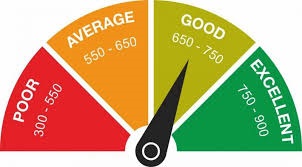Are you thinking about taking a personal loan? It’s essential to understand your credit score first. Your credit score not only plays a important role in loan approval but also determines how much interest you’ll pay. This article explains how your credit score impacts personal loan approval and interest rates.
What is a Credit Score?
A credit score is a three-digit number that shows your credit history and repayment track record. It usually ranges from 300 to 900. A good credit score indicates your credit worthiness and affects both loan approval and interest rates.
What is a Healthy Credit Score?
- 750 or Above: Considered a healthy credit score. If your score is 750 or higher, you have a better chance of getting loan approval and lower interest rates.
- Low Score: If your score is low, it negatively impacts your creditworthiness, increasing the risk for lenders.

How Does Credit Score Affect Loan Approval and Interest Rate?
Benefits of a High Credit Score:
- Lower Interest Rates: Higher credit scores increase the likelihood of securing loans at the lowest interest rates.
- Higher Loan Amount: With a better score, you may get a higher principal amount.
- Easy Process: High credit scores make the loan application process quicker and simpler.
Disadvantages of a Low Credit Score:
- Lower Approval Chances: Low credit scores reduce the chances of loan approval.
- Higher Interest Rates: Lenders see low scores as a higher risk, leading to higher interest rates.
- Difficult Terms: Even if approved, the loan terms might not be favorable, such as shorter repayment periods and higher interest rates.
Impact on Loan Repayment:
Loan repayment terms also depend on your credit score.
- High Score: You can get preferred terms and conditions.
- Low Score: Repayment periods might be shorter, and interest rates higher.
Effect on Principal Amount:
Your loan’s EMI depends on the loan amount.
- High Credit Score: You can borrow a larger amount.
- Low Credit Score: You may not get the desired amount.
Processing Time: With a low credit score, your loan application may undergo more scrutiny, extending the process. A high score, however, speeds up the process.
How to Improve Your Credit Score?
Improving your credit score can benefit for better financial opportunities. Here are 5 key steps to help you on this journey:
- Pay Your Bills on Time: This is crucial. Late payments negatively impact your credit score, so set reminders or automate payments to avoid missing due dates.
- Reduce Your Debt: High credit card balances can hurt your score. Aim to pay down existing debt, focusing on high-interest accounts first.
- Keep Credit Utilization Low: Try to use less than 30% of your available credit. For example, if your credit limit is ₹1,00,000, aim to keep your balance below ₹30,000.
- Check Your Credit Report for Errors: Mistakes on your credit report can drag down your score. Regularly review your report and dispute any inaccuracies you find.
- Avoid Opening Too Many New Accounts Quickly: Each credit inquiry can slightly lower your score. Only apply for new credit when necessary and try to space out your applications.
Remember, improving your credit score is a gradual process, but these steps can help you build a solid financial foundation over time. Stay patient and consistent, and you’ll see progress!
Conclusion
Before taking a personal loan, focus on improving and understanding your credit score. Know the terms offered by major lenders like Nomura and compare them. Remember, personal loan interest rates are generally higher than other loans, so thoroughly analyze your financial situation before making any decisions.
